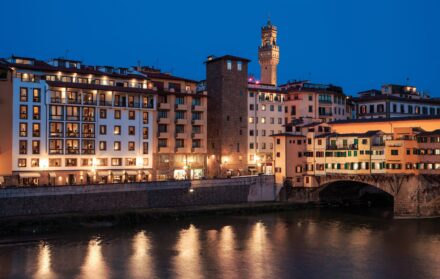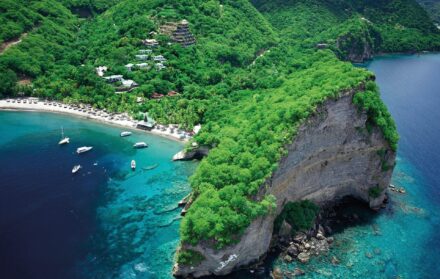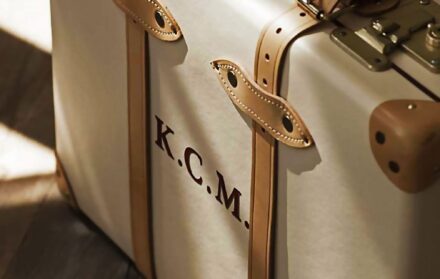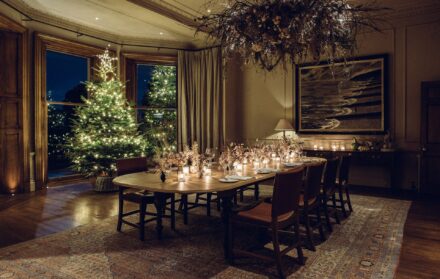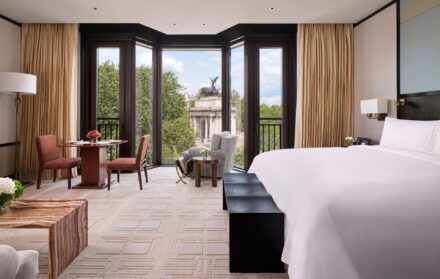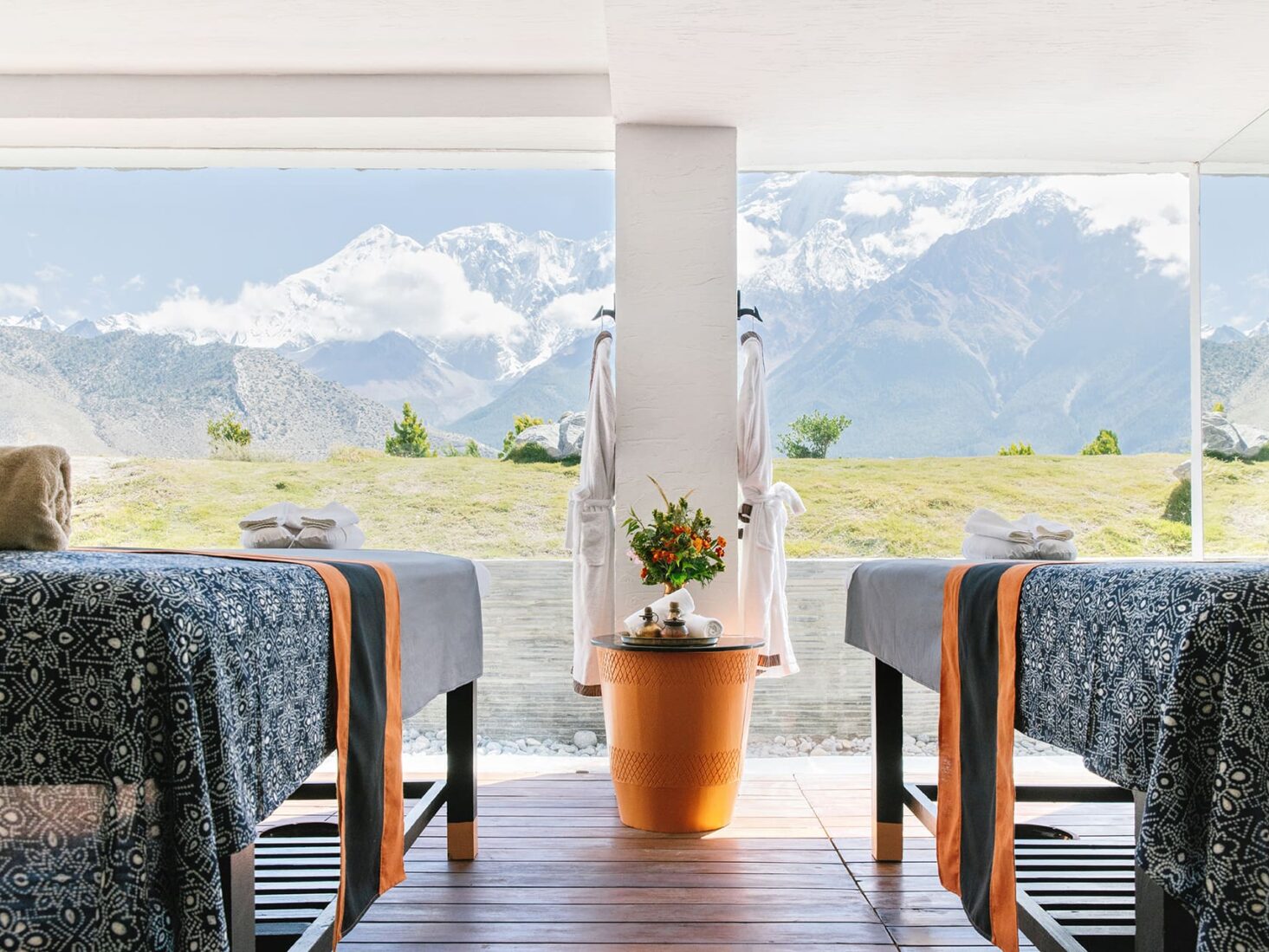
Healing in the Himalayas: Discovering the ancient tradition of Sowa Rigpa
Nepal attracts adventurers with their sights set on Everest basecamp or the Annapurna circuit – but there are other equally compelling reasons to visit the country, not least its ancient wellness traditions
Seeing the snow-capped Nilgiri Himal peaks bathed in the golden light of sunset is all it takes to instantly fall in love with Nepal, so it’s hardly surprising that the Shinta Mani hotel group built a mountain lodge with floor-to-ceiling views here. But right now I can only see them in my mind’s eye, as I’m lying face down on a massage table mesmerised by the harmonic chant of a medicine man. The powerful sound that fills the room is the same that has reverberated across the Himalayas for centuries: a prayer to the Medicine Buddha, to ensure the Sowa Rigpa treatment that will follow – administered using herbal poultices, copper cups and a yak horn – is successful.
I have no doubt I’m in good hands. Tsewang Gyurme Gurung is an 11th generation amchi, a traditional Tibetan healer and permanent fixture at the newly opened Shinta Mani Mustang, where he offers consultations to guests alongside serving the local community out of his clinic in the windswept town of Jomsom in Nepal’s Mustang region.
It’s a part of the world that was long shrouded in mystery. Referred to as the Forbidden Kingdom, Upper Mustang was closed to outsiders until just 30 years ago. These days hikers and pilgrims from around the globe come to see the ancient walled city of Lo Manthang and the temple of Muktinath, sacred to both Buddhists and Hindus. Jomsom, which sits along the popular Annapurna Circuit trekking trail, is the gateway to the region, where you’ll also find turquoise lakes, monasteries adorned with Buddhist frescoes, and villages such as Marpha and Lubra which have remained culturally unchanged for centuries.
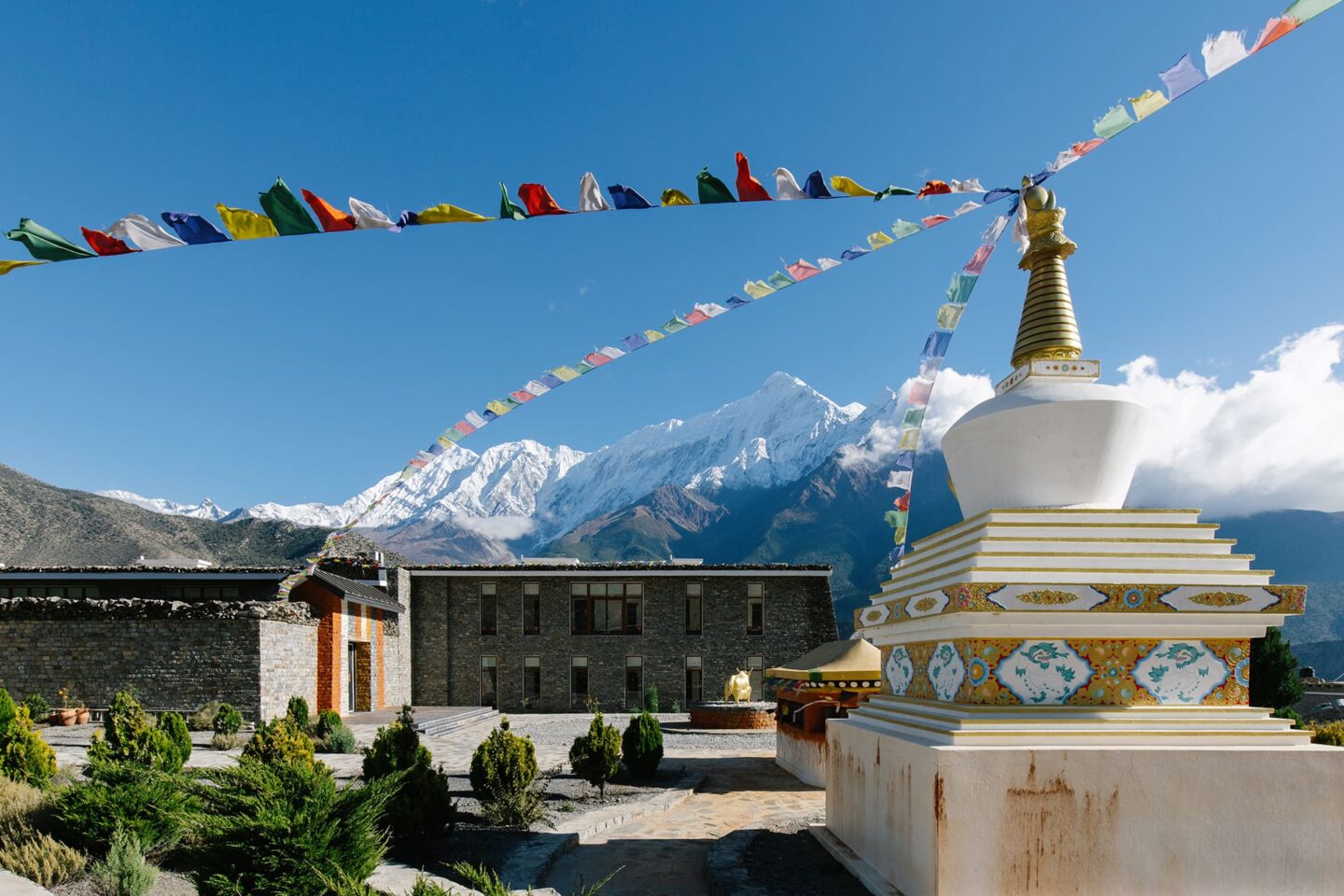
Equally well-preserved is Sowa Rigpa, the traditional Tibetan medicine system with roots dating back more than 2,000 years, and Tibetan doctors still study the Gyushi (Four Tantras), the 12th-century medical text that lays out its principles. Sowa Rigpa isn’t yet very well known in the West, certainly not in the way other ancient healing traditions, such as Indian Ayurveda, are but Gurung thinks it’s time that changed. “We are in an era now when the world needs it,” he says.
His diagnosis for me? Having taken my pulse by hand and looked at my ears, eyes and tongue – an analogue scan of my organs and nervous system – he concludes that my “wind channels are open” (not a good thing) and my mind is overactive, which is why I struggle to sleep. I do sleep much better after the treatment; a mix of traditional massage techniques known as ku nye and hor gyi metsa in which warm herbal bundles are dotted on pressure points all along the body, and thumb pressure is applied up and down the spine to regulate the wind channels. Cupping on the back helps to ease sore muscles and the aforementioned yak horn is used to release stagnant energy.
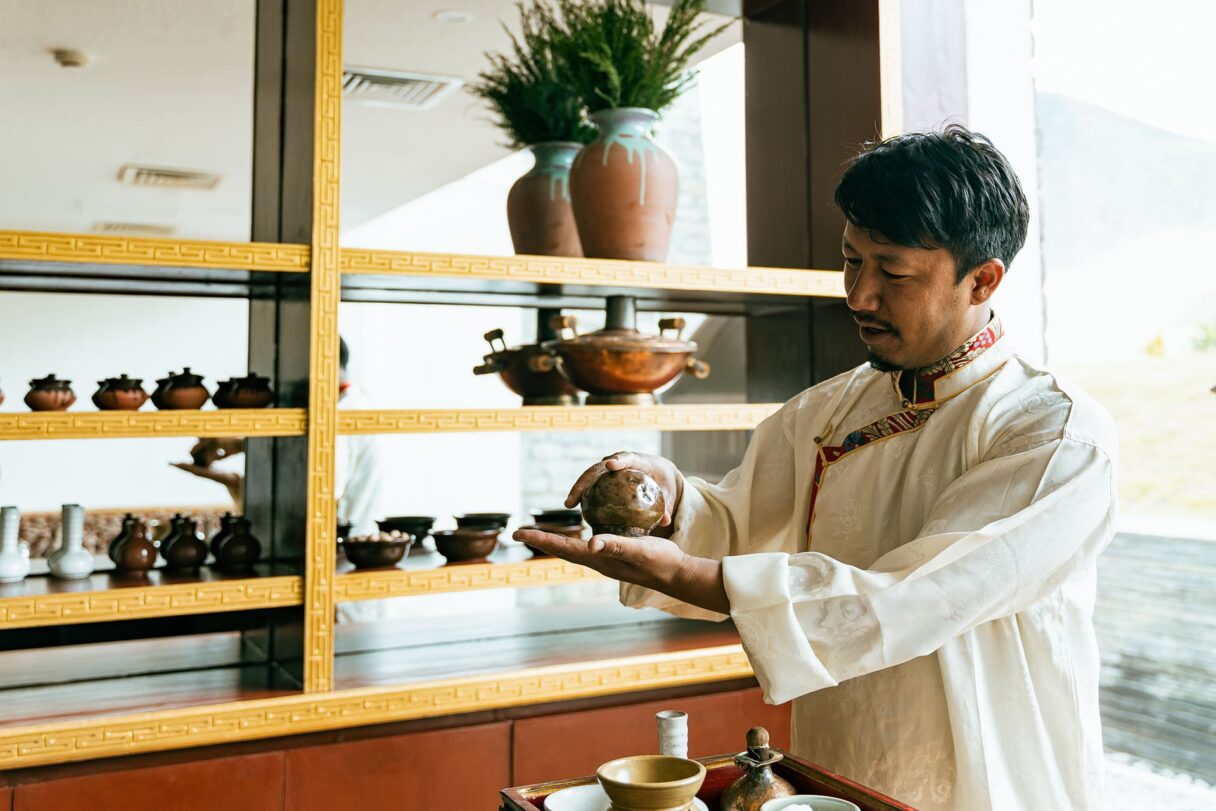
In his village practice Gurung also performs acupuncture with a golden needle – a technique said to cure a variety of ills and have a powerful anti-ageing effect – but it’s not something prescribed on the spot. First, he has to study your astrological chart. He works mine out and finds that I’m a ‘water pig’, which may explain why I tend to feel the cold. According to the Tibetan lunar calendar, I won’t suffer any major health issues in my lifetime and I’ll enjoy “moderate success”. Wednesday is my lucky day, whereas Tuesday is a bad day, and Saturday the worst. “Try to always travel on a Wednesday,” advises Gurung.
Sadly he can’t tell his own fortune as he is unsure of his exact birth date, knowing only that he was born in the year of the rabbit, so is around 37. In any case, Gurung seems less interested in age than in ageing well. “When we move away from measuring time according to the clock and calendar, time travels differently,” he says. I take it to mean that we age according not to how much time has passed but how we have spent that time. “For instance, by travelling,” he explains, “you will gain wisdom.” In his presence, it’s hard to argue with that.
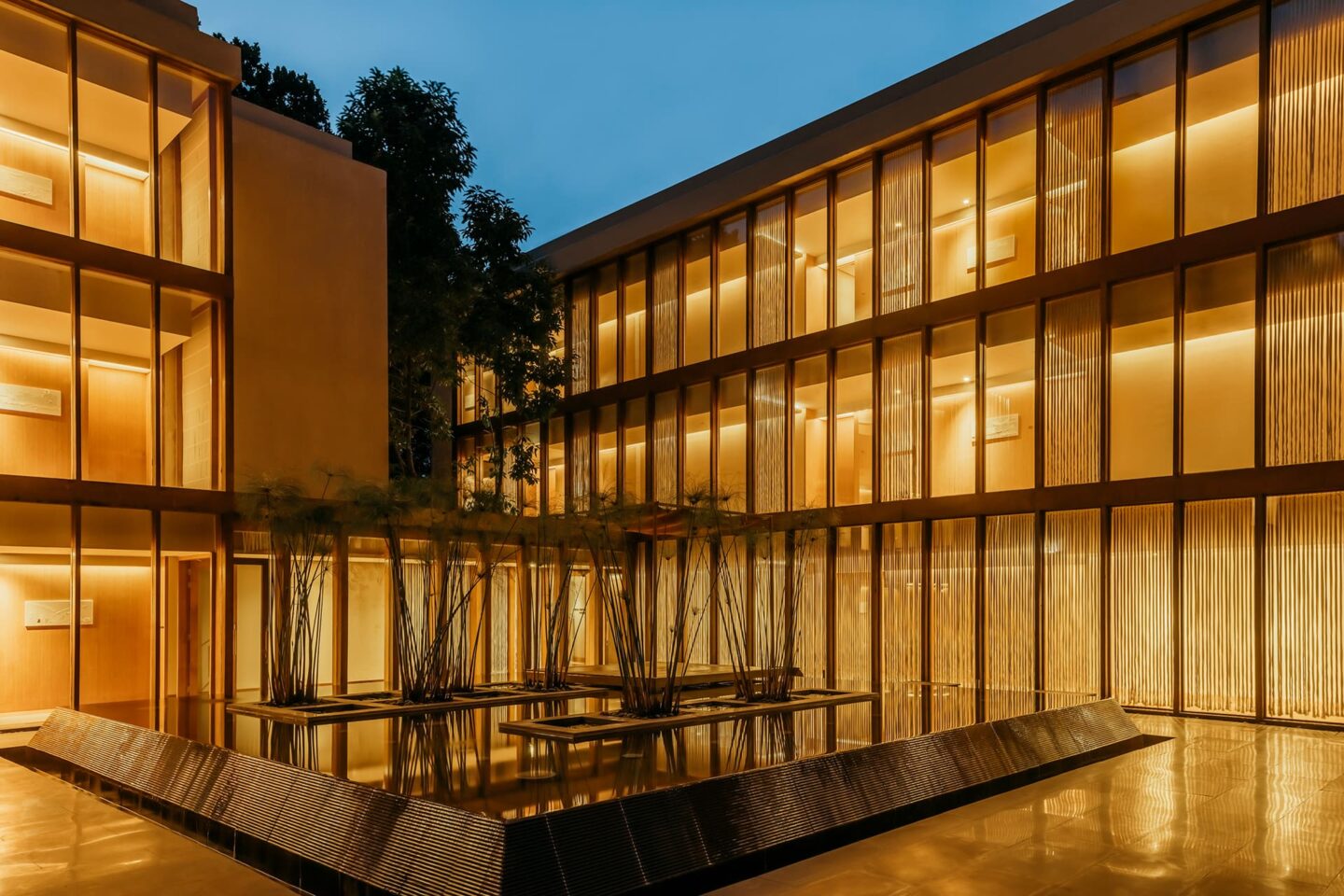
Having had a taste of Tibetan medicine in Mustang, I’m curious to see how it translates to a larger, more accessible wellness resort. Across the border in India, in the foothills of the Himalayas, Six Senses Vana is one of the few destination spas in the world bringing this ancient healing tradition to a wider clientele.
Its Sowa Rigpa Center is staffed with therapists who trained at Men-Tsee-Khang, the Dalai Lama’s Tibetan Medical and Astrology Institute in Dharamshala. Framed pictures of His Holiness adorn the walls, alongside paintings depicting the blue-bodied Medicine Buddha. The ubiquitous spa muzak is conspicuously absent in this haven of tranquillity, where it’s not just the physical body that is tended to, but emotional and spiritual wellbeing too.
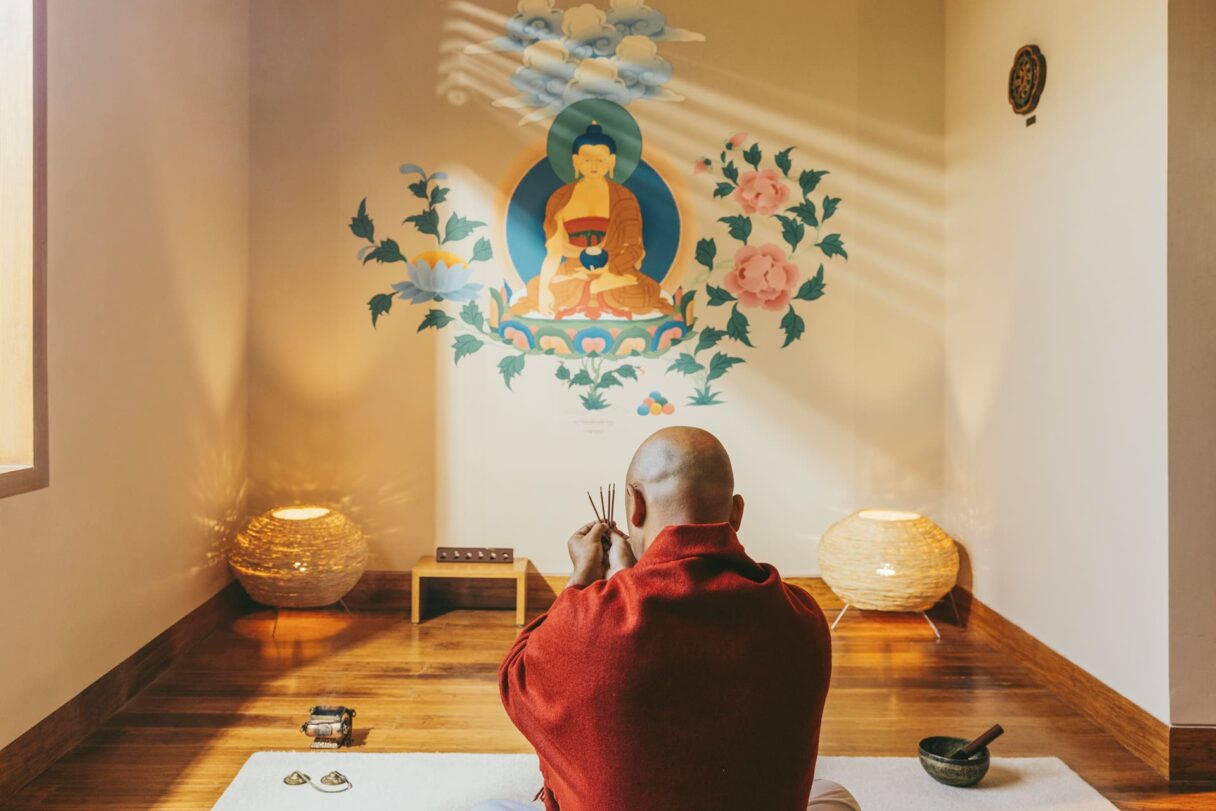
I enjoy a series of private sessions with Tibetan meditation teacher, Tenzin Gelek, who radiates inner peace as he takes me through techniques designed to help me achieve the same. My favourite is the classic Buddhist ‘loving kindness’ meditation, focused on feeling empathy for oneself and others. In the spa I am treated to the same rituals practiced by Gurung and his forefathers, and I gain more profound insight into their benefit and underlying philosophy courtesy of doctor Tenzin Sopa Bhutia, who happens to know Gurung well from their time together at medical school in Darjeeling.
From Sopa, I also learn that the prayer to the Medicine Buddha, delivered with soulful reverence at the start of each treatment, is much more significant than I first realised. In addition to requesting divine assistance in the healing process, the belief is that each time it is chanted it benefits not just the individual receiving treatment but – on some level – all sentient beings. It’s a notion that seems to perfectly capture the essence of a people who, even in exile, live their lives guided by principles of peace, love and compassion.
Seven nights’ full board at Six Senses Vana from £2,796 per person, visit sixsenses.com; suites at Shinta Mani Mustang from $1,800 (approx. £1,425) per couple per night, visit shintamanimustang.com

